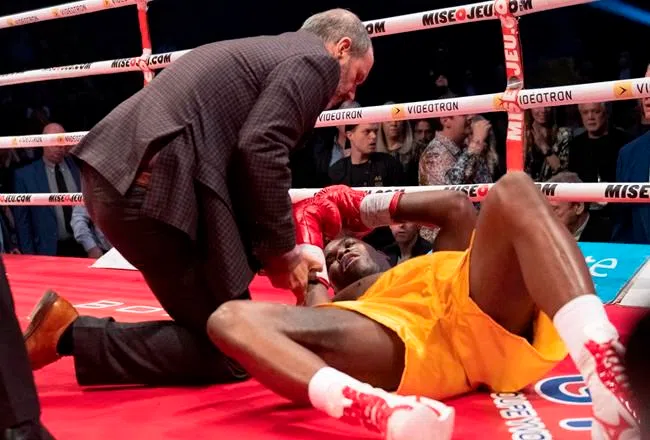
Knockout that left Montreal boxer in coma prompts questions in medical community
MONTREAL — One of the doctors who worked the boxing match Saturday night in Quebec City that left Adonis Stevenson hospitalized in an induced coma said he and his colleagues are at a loss to medically justify the sport.
The goal of boxing is to inflict damage on the opponent, often by knocking him unconscious. And that carries important risks for severe head trauma, Jean Dore said.
“I can’t say we can justify it,” Dore said in an interview. “It’s a question a lot of doctors are asking, especially doctors within the sport.”
As of Monday evening, Stevenson, the 41-year-old Montreal-based fighter known to his fans as “Superman,” remained in intensive care in a Quebec City hospital after a knockout by Oleksandr Gvozdyk of Ukraine. In a statement, the hospital described the fighter’s condition as stable.
